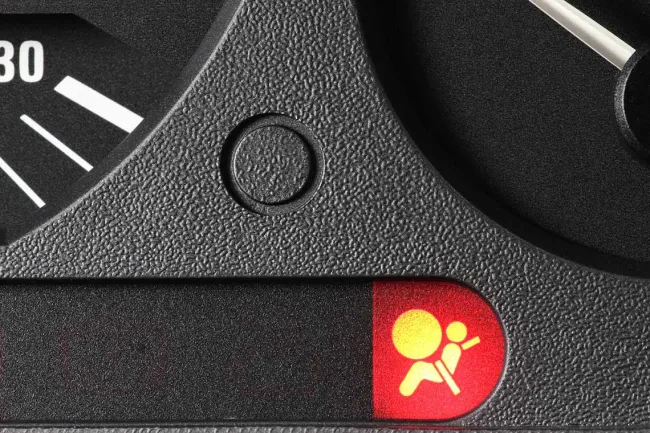In February, General Motors announced a recall of 107,000 older model sports cars due to airbag sensor issues, according to The Detroit News. This recall pertains to 2006 to 2010 Pontiac Solstice and 2007 to 2010 Saturn Sky models, which are no longer made by the automaker.
According to a National Highway Traffic Safety Administration recall report, an airbag sensor in these GM sports cars that determines if a child is sitting in the passenger seat could become warped and damaged over time, resulting in an electrical circuit shutting down the airbag entirely.
Although the issue was not linked to any known injuries, the faulty airbag sensor puts passengers at risk of a serious injury or death in the event of a car accident, as their airbag may not deploy to protect them as expected.
While this may be GM’s most recent recall over faulty airbag sensors, it certainly isn’t the first for the automaker — a worrisome prospect for many consumers. What steps can concerned motorists take in order to keep track of these many recalls and make sure the car they drive everyday is safe for the road?
This Isn’t the First Airbag Defect Recall for GM
Just a few months ago, GM came under fire for a widescale airbag deployment software defect that resulted in 4.3 million vehicles being recalled, according to Fortune.
This recall, announced on Sept. 9, 2016, includes 2015-2017 models of the Chevrolet Tahoe, Suburban and Silverado, among other recent popular builds by GM. And sadly, this airbag defect is linked to one death and three injuries that occurred before the recall was issued.
GM was also implicated in another, unrelated airbag scandal and recall in 2016 involving deadly defective airbags manufactured by Takata.
How Can You Find Out if Your Vehicle is Safe to Drive?
It can seem like there’s a new recall announced by a prominent automaker every week, and unfortunately, that’s not far from the truth. So, how can families who have searched far and wide for a safe, reliable vehicle make sure that their car or truck is just that?
Shockingly enough, despite the fact that most major recalls make headlines, a sizeable portion of cars are not repaired following these recalls, according to a 2016 study by J.D. Power and Associates. One in six cars on the road are recalled but not fixed, says the study, and this figure could be even higher as it is difficult to calculate recall compliance rates on older recalls.
Whether due to the drastic increase in recalls issued in recent years, motorists not taking these recalls seriously, insufficient information from automakers for consumers, or a mix of all these factors, our country’s poor recall compliance rate puts everyone on the road at risk.
Fortunately, the internet is making it easier than ever for consumers to stay informed about recalls that may affect their vehicle.
Look up recalls: If you’re concerned that your car is part of a recall that you were not made aware of, you can visit the U.S. government’s recall website, which allows consumers to easily search their motor vehicle for past and present recalls. Simply input your car’s year, make and model to search for recalls in the database.
File complaints: You can also file a complaint about a car, truck or motorcycle that you feel has a safety defect or flaw in its design. If you file a motor vehicle complaint, your report will be investigated by the National Highway Traffic Safety Administration.
Additionally, our website not only provides guidance about motor vehicle recalls, but also consumer alerts about medication, food, toys, and other consumer products that families should be concerned about.
Consumer Products Should Be Safe — Period
Whether it’s a tiny prescription pill or one of GM’s full-size SUVs, a defective consumer product has the potential to seriously injure and even kill. All companies should keep consumer safety top of mind when designing and manufacturing their products, but the desire to cut costs and speed up production too often leads to tragedy.
Fortunately, you have rights, and you don’t have to stand for unsafe products on the market. Consumers are protected by a series of federal and state laws, such as the Consumer Product Safety Act.
This law is enforced by the U.S. Consumer Product Safety Commission, which holds companies accountable for selling defective and unsound products and has the power to recall and ban these products. Most notably in recent months, IKEA agreed to a $50 million settlement after the CPSC found that the company’s tip-over prone furniture was linked to the deaths of multiple children in the U.S.
Our product liability attorneys are well-versed in these federal and state laws and can help you, as a consumer, seek legal recourse if you or someone you love were hurt by a dangerous consumer product.
We will fight to hold the manufacturer or retailer liable for the harm done to your family, as well as try to recover compensation for your medical bills, pain and suffering, and more. Fill out our free, no-risk case evaluation form to learn more today.
